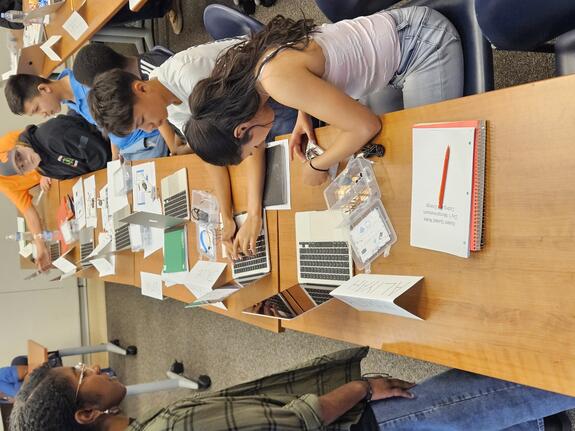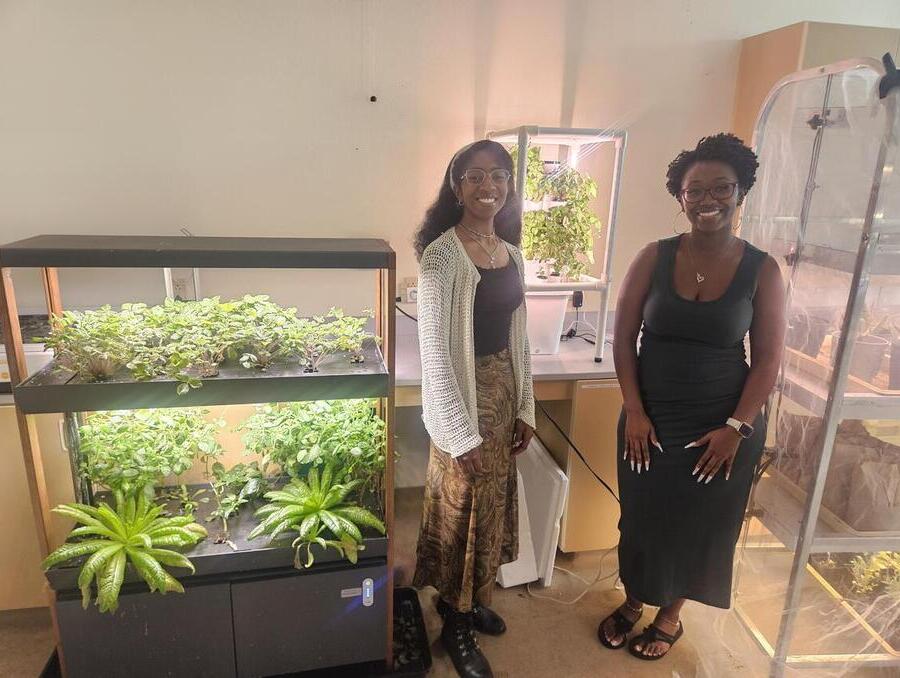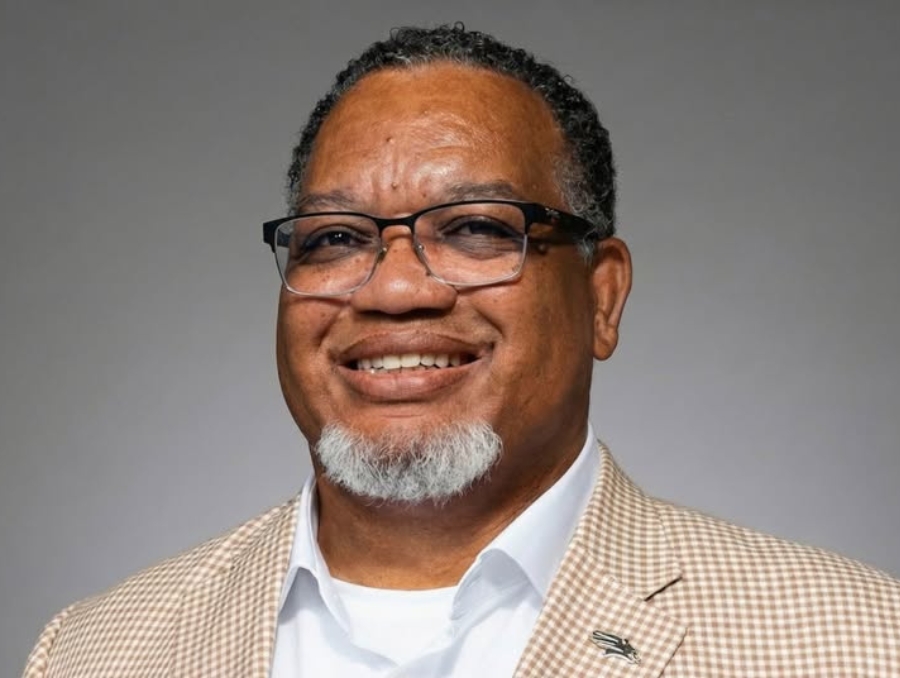The final school bell rang on a Friday before a holiday weekend.
Three days later, a group of 20 local middle school students signed up to be back in the classroom for a weeklong experience learning how to grow an indoor garden with the help of technology.
The workshop — a collaboration between faculty and staff from UNLV and University of Nevada, Reno Extension, the outreach arm of University of Nevada, Reno — taught the middle schoolers how to control the growth of plants in a hydroponics unit by using sensors and microprocessors to monitor and adjust temperature, humidity, light and water, creating optimal conditions for the indoor garden to thrive.
“The ultimate goal? To get students more interested in STEM,” said Tricia Braxton, Extension’s senior coordinator of partnerships, programs and people engagement, “We’re creating a curriculum that can be used in educational settings.”
A group of three UNLV students and recent grads spanning electrical engineering, mechanical engineering, and sociology piloted five lessons over five days, immersing students in electronic circuit design and data measurement through sensors and basic coding.
“I’ve noticed that if some students are gaining knowledge faster, they help each other out,” said Jillian Perry, a sociology major, who led the lessons with Christian Yuan, a May 2025 electrical engineering grad, and Osjah Ragin, a mechanical engineering master’s student. Braxton, who also serves as Extension’s program manager for the Youth Horticulture Education Program, in partnership with UNLV mechanical engineering professor Brendan O’Toole and Hasan Deniz, director of the Center for Mathematics, Science and Engineering Education at UNLV, developed the framework for the workshop’s first summer cohort — enhancing the Extension program’s garden-based learning with STEM concepts.
“We started this curriculum with a blank piece of paper and designed every aspect of the materials that would be needed, the time that would be needed for each lesson,” Braxton said. “We’re making it structured enough but pliable enough to use in any environment.”
The workshop is part of a larger youth and workforce development project that introduces hydroponics to K-12 students to enhance their interest in STEM. This project is one of nine multi-year initiatives funded through a $1.7 million partnership between UNLV and University of Nevada, Reno Extension to address critical health, social and environmental challenges affecting communities in Clark County.
STEM awareness at the middle school level

O’Toole, who has had a longstanding interest in informal youth education, submitted a proposal to fund the College of Engineering’s FIRST Robotics mentoring program. Deniz and Braxton submitted other proposals. But, because of the limited pool of funds available, and after finding common points of interest across the three ideas, O’Toole soon partnered with Deniz and Braxton on a new, collaborative proposal.
“The interesting thing is that they said: ‘Alright, we like all these proposals. But we want you to figure out a way to work together and come up with one, unifying proposal,’” O’Toole recalled, adding that they received about $140,000 to make the workshop, and ultimately, the STEM-hydroponics curriculum, a reality.
“We’ve got five or six lessons now that are pretty good; this is our second pilot. We offered the workshop last fall as a Saturday morning program, and we’ve refined the lessons between then and now.”
They also think they achieved the right mix of prior coding and Arduino experience among the students, with more than half of participants experiencing these concepts for the first time.
“We wanted to bring more awareness to the middle school level so that by the time they get to high school, they’ll have a sense of what they’re interest is as opposed to waiting until after graduating from high school even, and getting into college,” Braxton said. “This is the awareness that’s needed early on.”
While middle school was the target age for the curriculum, the team will also test out the curriculum for high schoolers June 23-July 18 during the C.O.O.L. (Community. Outreach. Opportunity. Leadership.) Summer Program at Clark High School.
“I think our last step is to bring in a couple educators to see what we’ve done and to see what their input would be,” O’Toole said.
The grade the team received from the student participants? An A+.
“The instructions are easy to understand, and the exercises are fun but also very educational. There’s a lot of hands-on activities,” said Kimberly Inidiveri, a rising 9th grader at the Coral Academy of Science. “It’s my first time working with hydroponics and STEM.”
This story was originally written by Natalie Bruzda, director of communications for the College of Engineering at UNLV, and has been edited for publication in Nevada Today.
















